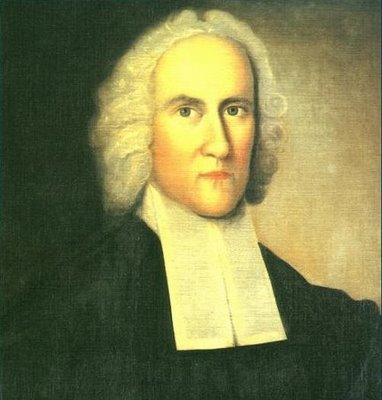Posts Tagged ‘Christian Hedonism’
Jonathan Edwards Resolutions #1: Resolved, that I will do whatsoever I think to be most to God’s glory, and my own good . . .
1. Resolved, that I will do whatsoever I think to be most to God’s glory, and my own good, profit and pleasure, in the whole of my duration, without any consideration of the time, whether now, or never so many myriad’s of ages hence. Resolved to do whatever I think to be my duty and most for the good and advantage of mankind in general. Resolved to do this, whatever difficulties I meet with, how many and how great soever.
Al Mohler Tweet
albertmohler “Both beauty and ugliness have an immediate evidential power, the one pointing to truth & goodness the other to error and evil.” Thom. Dubay
This goes well with a discussion on affections that I have been having with many of you through this blog/facebook/twitter and with a dear friend in person today.
From a Conversation I Want Others In On: If God is Enough, why did He make other wonderful “things”?
See https://anunworthyservant.com/2010/03/when-will-god-be-enough/#comments (In Lyrical Theology) to join in on this conversation and see the rest . . .
. . . When we think of life, we tend to look at what is right in front of us and assume that it is FOR us. Rarely do we look behind the this or that – whether good or bad. There it is (or will be) and “hmmm, what do I think about that?” Well, that says nothing about the meaning or purpose of Life AND the living of it. The truth that so many have come to understand is summed up most concisely in question #1 of the Westminster Catechism:
Q. 1. What is the chief end of man?
A. Man’s chief end is to glorify God, and to enjoy him forever.
Now, a person might say in a discussion like this, “Yeah . . . it says ‘chief end’, not only end. Sure we are supposed to ultimately do that, but that does not mean that we can’t/shouldn’t do anything else, right?”
Well, that is where guys like Jonathan Edwards and John Piper help to belabor thorough clarity to that statement by unpacking all of that. Inso doing, they help us understand that to have a chief end means that you seek to move EVERYTHING to that end. Anything else would be in competition to the chief end and therefore not an exercise in running to, or even desiring that chief end. Once there is a chief end in mind, everything must then point toward that end. One does not get to the UK from the US by going due North.
This is where we seek a singular enjoyment of God even through the enjoyment of the ‘things’ that He has given us. So, I eat strawberries to the glory of God; and savor in my wife to the glory of God; and delight in spirited dialog to the glory of God. These ‘things’ are gifts from Him (James 1:17), but to stop there, for even a moment, and bask in their glory is almost a raping of the glory that any ‘thing’ might have – that is, if anything is truly delightful (at whatever degree) about it, then it must have in it the delightfulness of God AND SO it exists to bear witness to and direct toward the delightfulness of God. To stop at the ‘thing’ and delight in it is to even rob it of its purpose . . .


